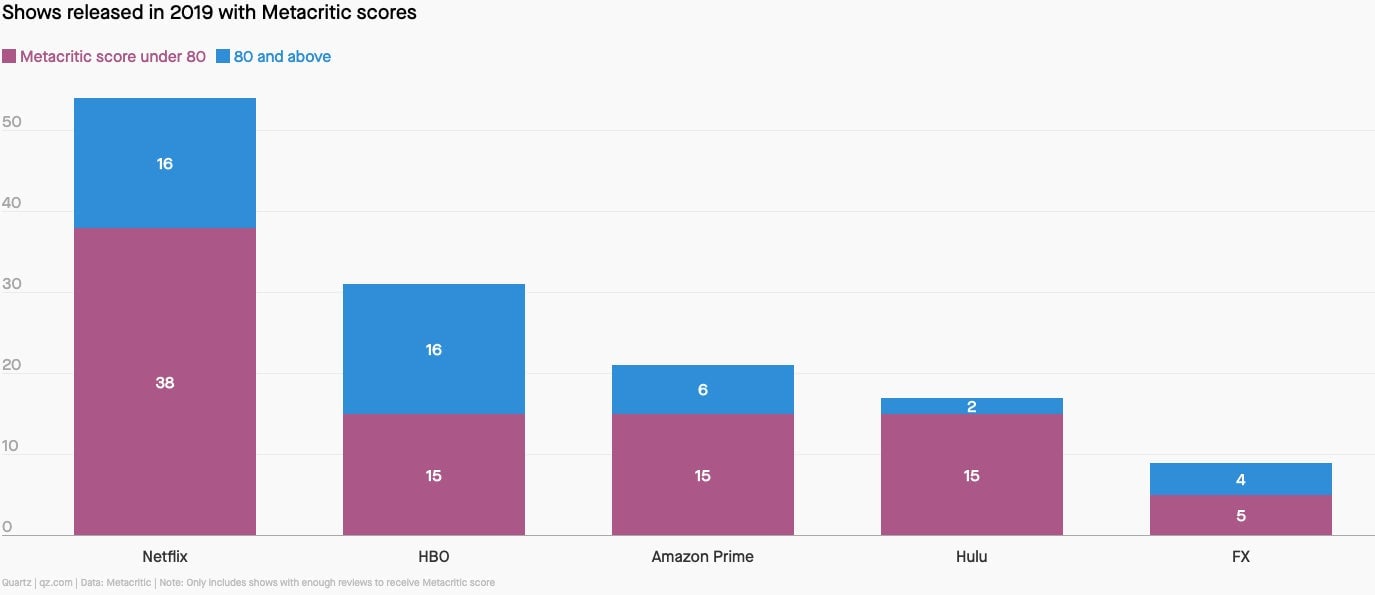What’s next for Netflix?
Netflix, the world’s leader in streaming, is benefiting from the way the coronavirus pandemic is upending entertainment. But it might not be enough to win the global entertainment war.Here’s the TLDR on our latest member-exclusive field guide on Netflix’s next stage.


💡The Big Idea
Netflix, the world’s leader in streaming, is benefiting from the way the coronavirus pandemic is upending entertainment. But it might not be enough to win the global entertainment war.Here’s the TLDR on our latest member-exclusive field guide on Netflix’s next stage.
🤔Here’s Why
1️⃣ The coronavirus pandemic has led to a streaming boom at the expense of traditional entertainment businesses like movie theaters.
2️⃣ Netflix has leveraged the situation to continue its rapid global growth.
3️⃣ Its ambition in France serves as a microcosm of its overall international strategy.
4️⃣ To win the next stage in the global entertainment war, it will need to fend off a new wave of streaming competitors.
5️⃣ It will also need to innovate, invest in content outside the US, and experiment with other streams of revenue.

The Details
1️⃣ The coronavirus pandemic is leading to a streaming boom.
Streaming usage across the industry skyrocketed as countries went into lockdown in response to the coronavirus pandemic. Netflix—with its low price point, extensive international library, and binge-watching model, was always positioned to take advantage. The streaming service has added about $40 billion to its market value since the start of the pandemic.
2️⃣ Netflix has leveraged the situation to continue its rapid global growth.
Before the pandemic, Netflix’s growth in the US was slowing to a halt as it neared market saturation and focused its efforts instead on global expansion. The company is betting that by spending huge sums on content, it will grow so large and indispensable to consumers that it actually becomes the world’s primary method for consuming video. It wants to become TV.
If Hollywood studios are weakened by the pandemic, Netflix could be in an even stronger position to grab potentially lucrative projects and secure top-tier talent that might otherwise have demanded a significant theatrical rollout. Many filmmakers want their films to show in theaters if at all possible, but they’d also rather they be released the Netflix way—that is, a simultaneous rollout to all subscribers’ homes—than not at all.
3️⃣ Its ambition in France serves as a microcosm of its overall international strategy.
Gaining acceptance in France is critical to Netflix’s goal of securing audiences outside of the US. Its recent efforts in the country have included opening an office in Paris with 40 employees, announcing 20 new productions, supporting local training and employment programs, and even planning a return to Cannes, despite a long-running conflict with the film festival.
4️⃣ To win the next stage in the global entertainment war, it will need to fend off a new wave of streaming competitors.
Netflix is the Hollywood establishment it once sought to disrupt, and it has inspired a wave of competitors looking to do to it what it did to the old guard seven years ago when it began making original content. Several longtime members of that old guard—Disney, Warner Bros, NBCUniversal, and others—are launching their own streaming services in part to loosen Netflix’s foothold in the US and, increasingly, the rest of the world.
5️⃣ It will also need to innovate, invest in content outside the US, and experiment with other streams of revenue.
Netflix’s approach to original content has emphasized quantity over quality. It’s unclear how Covid-19 will affect Netflix’s content spend this year and moving forward. But once global film and TV production is safe to resume, some analysts think Netflix could increase its content budget even more than expected to make up for lost time.

Beyond original content, Netflix will be presented with enormous opportunities for growth and innovation over the next decade. It has already and will continue to pioneer interactive forms of storytelling that change the definition of what “TV” means in the 21st century. It will penetrate deeper into new markets as broadband internet connects more parts of the world. And it will, inevitably, experiment with revenue streams other than subscriptions, whether that’s advertising, consumer products, data collection, or long-rumored acquisitions.